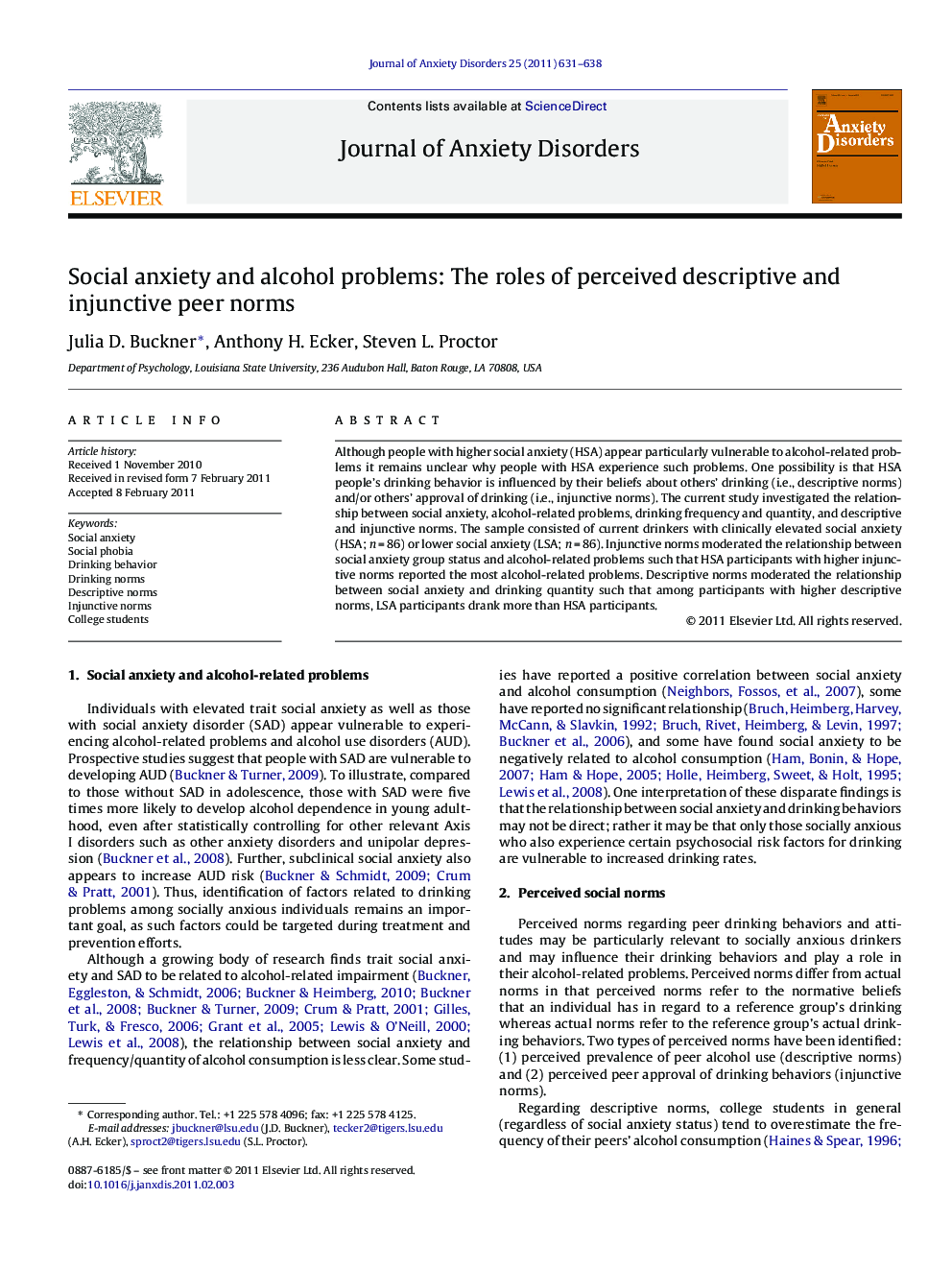| Article ID | Journal | Published Year | Pages | File Type |
|---|---|---|---|---|
| 909438 | Journal of Anxiety Disorders | 2011 | 8 Pages |
Although people with higher social anxiety (HSA) appear particularly vulnerable to alcohol-related problems it remains unclear why people with HSA experience such problems. One possibility is that HSA people's drinking behavior is influenced by their beliefs about others’ drinking (i.e., descriptive norms) and/or others’ approval of drinking (i.e., injunctive norms). The current study investigated the relationship between social anxiety, alcohol-related problems, drinking frequency and quantity, and descriptive and injunctive norms. The sample consisted of current drinkers with clinically elevated social anxiety (HSA; n = 86) or lower social anxiety (LSA; n = 86). Injunctive norms moderated the relationship between social anxiety group status and alcohol-related problems such that HSA participants with higher injunctive norms reported the most alcohol-related problems. Descriptive norms moderated the relationship between social anxiety and drinking quantity such that among participants with higher descriptive norms, LSA participants drank more than HSA participants.
Research highlights► HSA was related to more drinking problems than LSA. ► Injunctive norms moderated the social anxiety group-drinking problems relation. ► HSA and higher injunctive norms related to more drinking problems. ► Descriptive norms moderated the social anxiety group-drinking quantity relation. ► Among those with higher descriptive norms, LSA related to more drinking.
